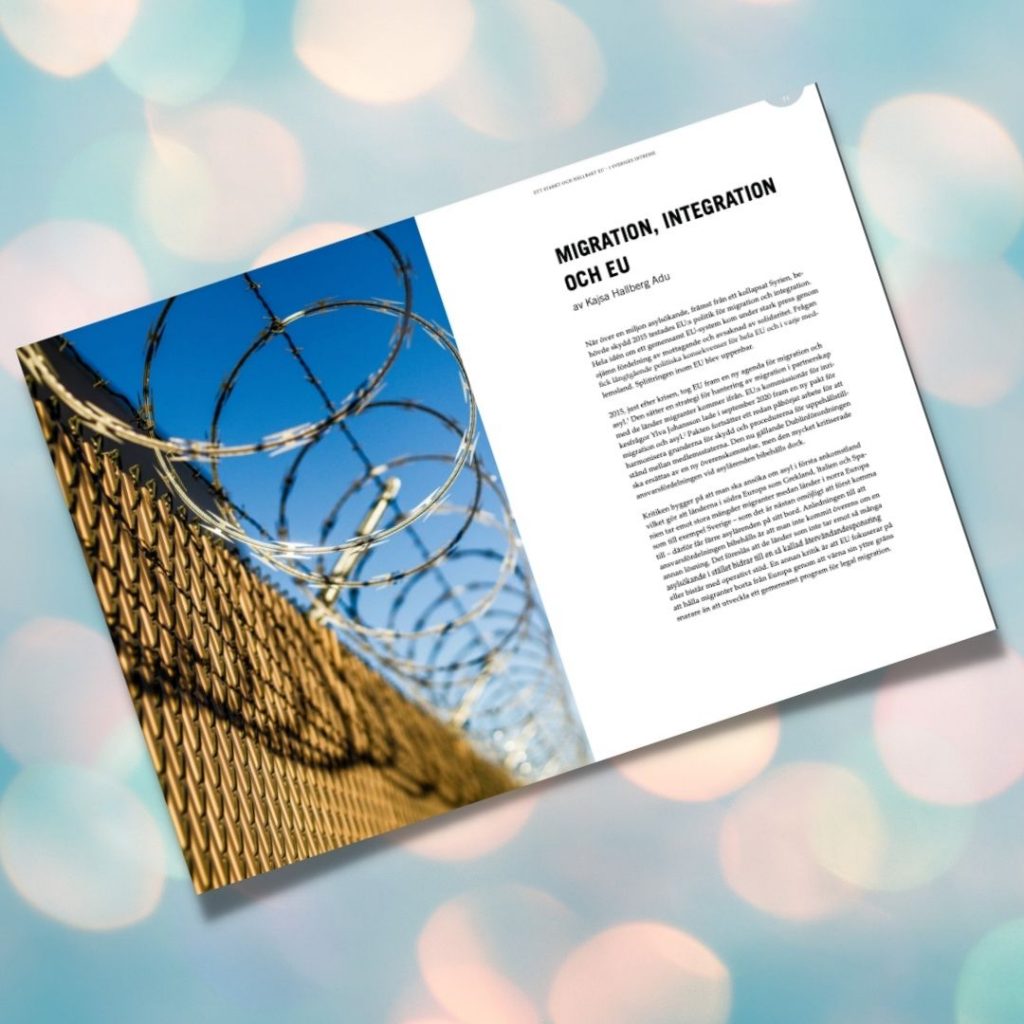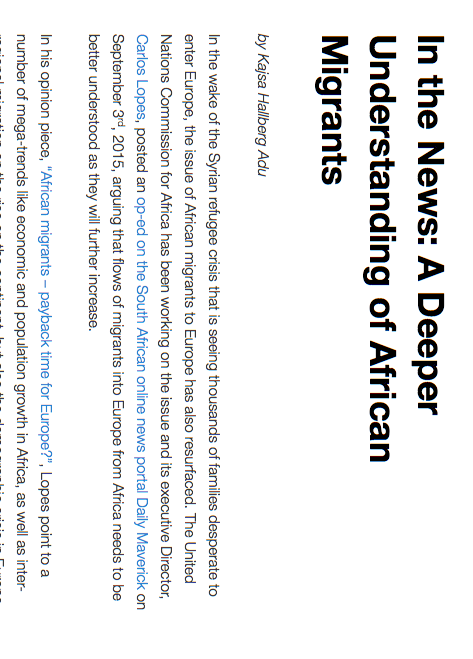Together with Swedish think-tank Global Utmaning, I have written a chapter in an anthology on Swedish policy for a stronger EU in areas such as migration, climate, finance, new technologies such as artificial intelligence, youth, and many more. The ambition of the anthology is to also show how these policy areas overlap like human rights and migration, democracy and climate, development assistance, and trade.
Sweden joined the EU for economic reasons after the referendum in 1994. Since then the world has changed and EU has become a very political organization. The political climate has become more polarised and major issues are not resolved within the union. The very organization created to avoid war and conflict has not dealt very well with shocks. The Syria crisis with refugees and the ongoing migration from Africa have exposed the weaknesses of EU countries not being able to work together to provide shelter for the needy and fair process for those wishing to stay. The covid pandemic was another shock the EU did not handle well. BREXIT meant the EU for the first time has been challenged by real threats of falling apart. Taken together, the EU is shaking and can therefore not be a very strong voice in the world.

My Contribution
I wrote about migration and integration. The recommendations coming out of my chapter which tried to broaden the conversation to labor market needs and possible solutions used the Software Development-project at KTH that I work with as an example. My policy recommendations for Sweden in the EU were (translated here):
SWEDEN SHOULD:
• Act to change the view of immigrants and their integration into society, in line with
The EU’s new integration action plan, ie to value the indispensable value of immigrants
contribution to our society;
• Prioritize a sustainable, harmonized, and long-term migration and integration policy –
within the framework of a common European regulatory framework – based on principles inline
with EU’s core values such as rule of law. This policy area should get more resources because it
is both a social and economic investment for the future;
• Question the Migration Commission’s focus on temporary residence permits for
asylum seekers and return processes based on protection reasons that often do not change
significantly over a period of a few years.
Online Launch
The seminar (in Swedish only) that launched the anthology “A strong EU, in Sweden’s interest” whas broadcast on YouTube and featured politicians as well as one of the editors of the anthology, Hans Alldén.
Some issues that were discussed were: What is a stronger EU? More united? Faster by taking majoritarian decisions instead of seeking consensus? More power and responsibility in the world? Better decisions taking the subsidiary principle into account? What can Sweden bring to the table?
Interesting issues raised by invited panellists were among others:
Jutte Guteland (S): Media do not cover European politics means weak transparency, despite much power with the EU.
Jakop Dalunde (Mp): Nobody keeps me accountable as a parliamentarian in the EU.
Hanne Waerland-Fager (Eu youth dialogue): We have to learn about what issues different political levels are in charge of, when we go to elections for the EU parliament we should discuss issues that EU is mandated to address.
Göran von Sydow (Director Swedish Institute for European Policy Studies): The pandemic is an interesting example where health is a national responsibility, but these measure affects EU at large, however collaborative measures were not happening.
You find the anthology (in Swedish) here: https://www.globalutmaning.se/wp-content/uploads/sites/8/2021/05/Ett-starkt-och-ha%CC%8Allbart-EU-i-Sveriges-intresse.pdf





